Dry skin can be uncomfortable, itchy, and sometimes even painful. It’s essential to establish a skincare routine that addresses the specific needs of dry skin to keep it healthy, hydrated, and glowing. With the right products and techniques, you can effectively manage dry skin and achieve a smooth, supple complexion. In this article, we will provide you with a step-by-step guide to the best skincare routine for dry skin.
Furthermore, Dry skin can be a persistent challenge that requires a specialized skincare routine to nourish and replenish the skin’s moisture barrier. If you’re struggling with dry skin, you’re not alone. Many factors, such as weather, genetics, and lifestyle, can contribute to dryness.
However, with the right approach and products, you can effectively manage dry skin and achieve a healthy, radiant complexion. In this ultimate guide, we will walk you through a step-by-step skincare routine tailored for dry skin, to help you achieve the best results.
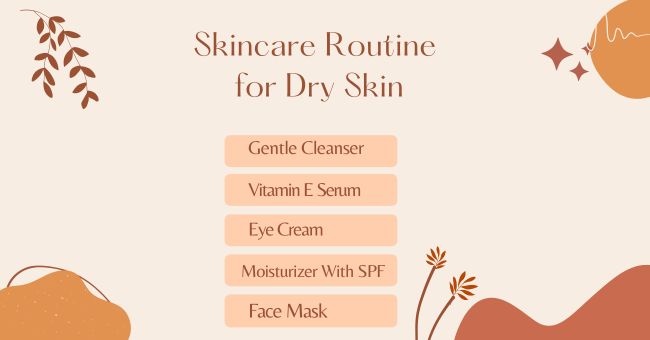
Guide To The Best Skincare Routine For Dry Skin;
we will provide you with 12 best tips with a step-by-step guide to the best skincare routine for dry skin,
1: Gentle Cleansing for Dry Skin;
Start your skincare routine by choosing a gentle cleanser specifically formulated for dry skin. Look for creamy, hydrating, or moisturizing cleansers that won’t strip the skin’s natural oils. Avoid harsh soaps or foaming cleansers, as they can further dehydrate your skin. Gently massage the cleanser onto your skin using circular motions, then rinse with lukewarm water and pat dry with a soft towel.
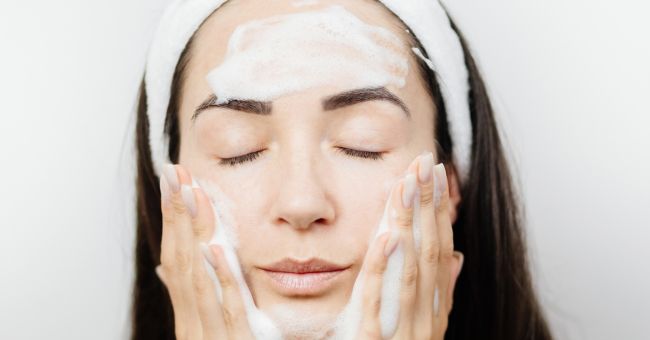
2: Exfoliate Regularly, but Mildly;
Exfoliation is essential for removing dead skin cells and unclogging pores, but it’s important to be gentle with dry skin. Opt for a mild exfoliator with gentle beads or enzymes that won’t irritate or strip your skin. Limit exfoliation to once or twice a week to avoid over-exfoliating, which can worsen dryness.
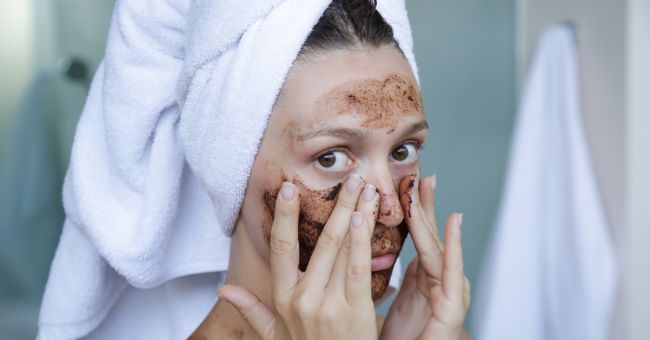
3: Hydrate Intensely;
Moisturizing is a vital step in any dry skin care routine. Look for moisturizers that are specifically formulated for dry skin and contain hydrating ingredients such as hyaluronic acid, ceramides, and shea butter. Apply moisturizer to slightly damp skin to lock in moisture and help repair the skin barrier. Pay extra attention to dry areas such as the face, neck, hands, and elbows.
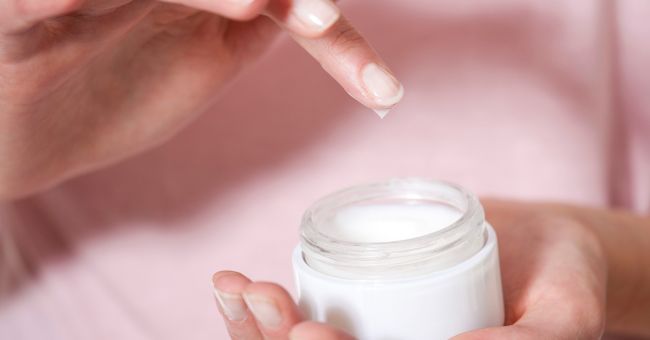
4: Shield Your Skin with Sunscreen;
Protecting your skin from the sun’s harmful UV rays is crucial, even if it’s not sunny outside. Look for a broad-spectrum sunscreen with at least SPF 30 and apply it generously to all exposed areas of your skin. Remember to reapply every two hours, or immediately after swimming or sweating, to ensure maximum protection.
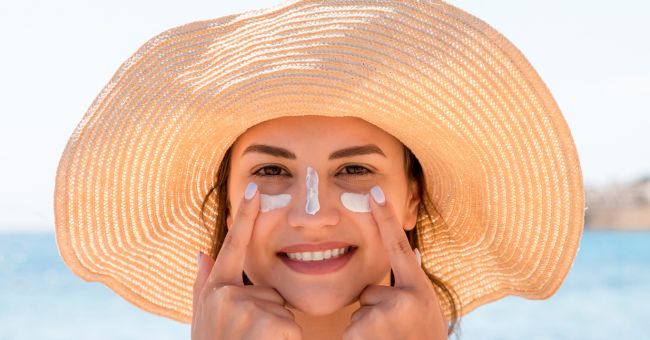
5: Boost Hydration with Masks and Serums;
Integrating hydrating masks and serums into your routine can provide an extra boost of moisture for your dry skin. Look for masks and serums that contain ingredients like hyaluronic acid, which can attract and retain moisture in the skin. Use them once or twice a week to help replenish and nourish your skin.

6: Avoid Hot Water and Harsh Products;
Avoid Skin Irritants such as Harsh products and hot water can further dehydrate dry skin. Avoid products that contain alcohol, fragrances, or other irritants that can strip the skin’s natural oils. Instead, opt for gentle, hydrating products. When washing your face or taking a bath or shower, use lukewarm water instead of hot water to prevent further dryness.

7: Drink Plenty of Water and Eat a Healthy Diet;
Hydrating your skin starts from within. Drink plenty of water throughout the day to keep your body and skin hydrated. Additionally, follow a healthy diet rich in fruits, vegetables, and healthy fats, such as avocados and nuts, to provide your skin with essential nutrients that promote overall skin health.

8: Use Hydrating Toners;
Toners can be a great addition to your dry skin care routine, as they can help balance the skin’s pH and provide an extra layer of hydration. Look for alcohol-free toners that contain hydrating ingredients like glycerin, rosewater, or chamomile extract. Apply the toner to your face and neck using a cotton pad or your fingertips, and gently pat it on your skin.

9: Incorporate Face Oils;
Face oils can be a game-changer for dry skin, as they can lock in moisture and provide nourishment to the skin. Look for face oils that are specifically formulated for dry skin and contain ingredients like jojoba oil, argan oil, or rosehip oil. Apply a few drops of face oil to your fingertips and gently massage it onto your face and neck in upward motions.
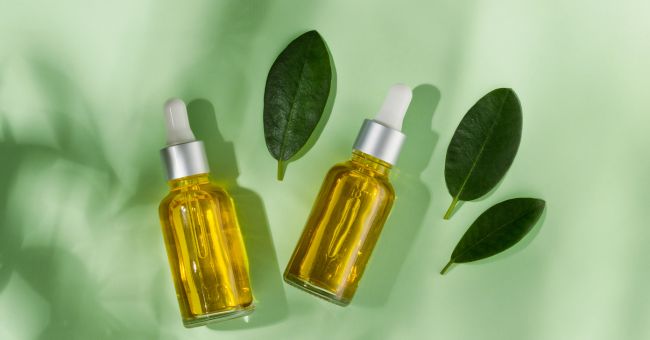
10: Limit Hot Showers and Baths;
While hot showers and baths can be comforting, they can also strip your skin of its natural oils, leading to dryness. Limit your exposure to hot water and opt for lukewarm water instead. Keep your showers and baths short and avoid harsh soaps or body washes that can further dry out your skin. Afterward, gently pat your skin dry with a soft towel and immediately apply moisturizer to lock in moisture.

11: Protect Your Lips;
Dry skin can also affect your lips, so it’s important to give them some extra care. Use a lip balm that contains moisturizing ingredients like shea butter, beeswax, or coconut oil to keep your lips hydrated and prevent chapping. Avoid licking your lips, as it can further dry them out. Remember to apply lip balm throughout the day and before bed to keep your lips soft and supple.
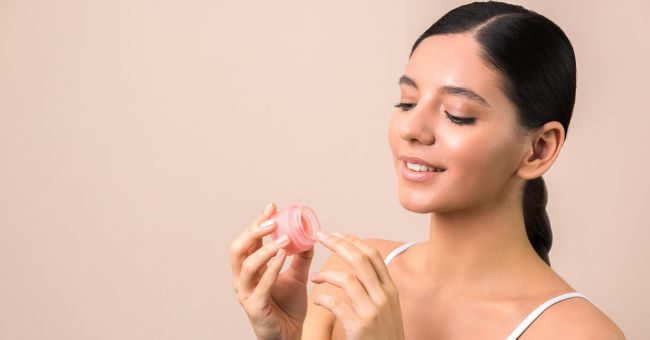
12: Consider Humidifiers;
Dry indoor air can exacerbate dry skin, especially during the colder months. Consider using a humidifier in your home, especially in your bedroom, to add moisture to the air and help hydrate your skin. Humidifiers can also benefit your respiratory health and overall well-being.
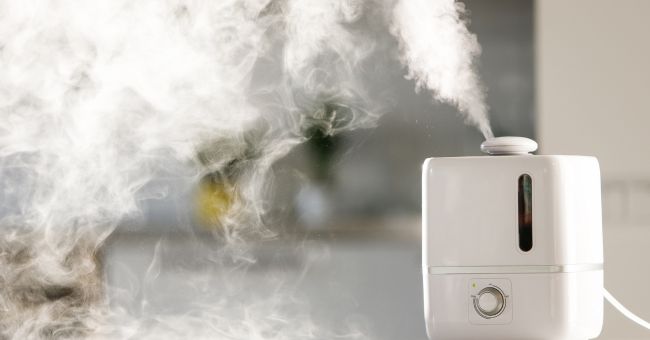
Conclusion;
Taking care of dry skin requires a gentle, hydrating approach. By following a skincare routine that includes cleansing gently, exfoliating mildly, hydrating intensely, protecting with sunscreen, using hydrating masks and serums, avoiding hot water and harsh products, and maintaining a healthy lifestyle, you can keep your dry skin healthy and glowing. Remember to consult with a dermatologist if you have any specific concerns about your dry skin. With the right care, you can achieve a hydrated, radiant complexion that looks and feels its best.
Frequently Asked Questions!!
Q1: What is dry skin?
Dry skin is a skin type characterized by a lack of moisture and a reduced ability to retain water. It often feels rough, and tight, and may appear flaky or dull.
Q2: How can I determine if I have dry skin?
Dry skin often feels tight, especially after cleansing. It may appear flaky, rough, or irritated. You may also notice fine lines and a lack of natural oil production on your face.
Q3: What should be included in a skincare routine for dry skin?
A basic skincare routine for dry skin should include gentle cleansing, hydrating toner, moisturizer, and sunscreen. Additional products like serums, face oils, and exfoliants can be added as needed.
Q4: What cleanser is best for dry skin?
Look for gentle, hydrating cleansers that do not strip the skin of its natural oils. Cream or oil-based cleansers are often suitable for dry skin types.
Q5: How often should I exfoliate my dry skin?
Exfoliation is essential for removing dead skin cells, but overdoing it can further dry out the skin. Aim to exfoliate once or twice a week using a mild exfoliant specifically designed for dry skin.
Q6: Should I use a moisturizer even if I have oily areas on my face?
Yes, moisturizing is essential for all skin types, including dry and oily skin. Look for lightweight, oil-free moisturizers or gel-based formulas that provide hydration without adding excess oil.
Q7: Can I use face oils for dry skin?
Yes, face oils can be beneficial for dry skin as they help seal in moisture and provide nourishment. Look for oils such as jojoba, argan, or rosehip seed oil, and apply a few drops onto damp skin.
Q8: Is it necessary to wear sunscreen if I have dry skin?
Yes, sunscreen is crucial for everyone, regardless of skin type. Look for a broad-spectrum sunscreen with at least SPF 30, and choose a moisturizing formula to provide hydration and protection.


